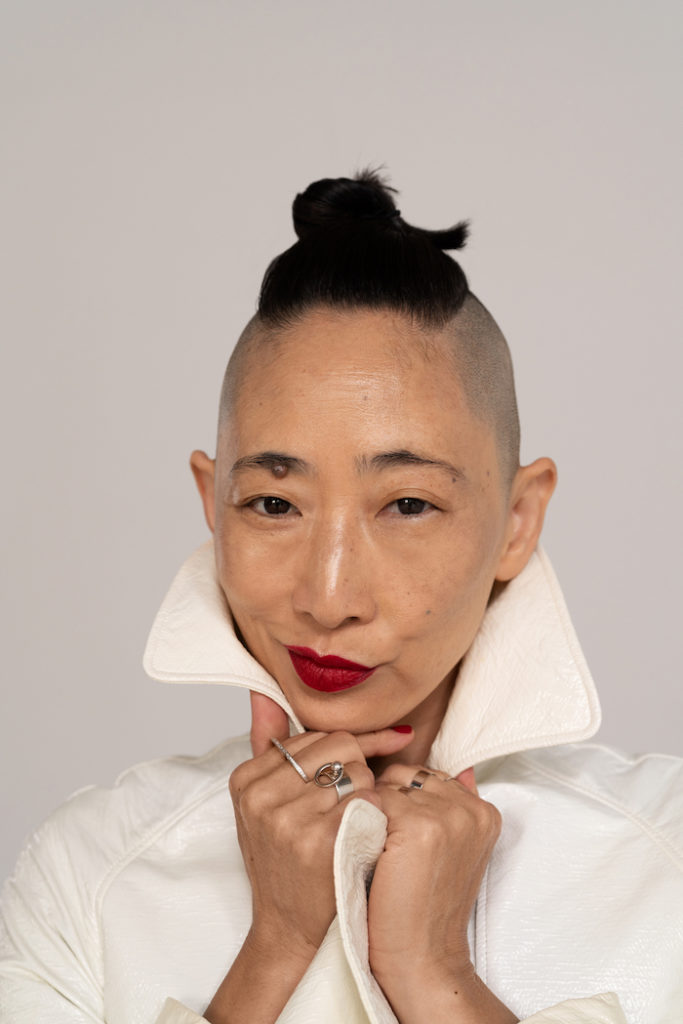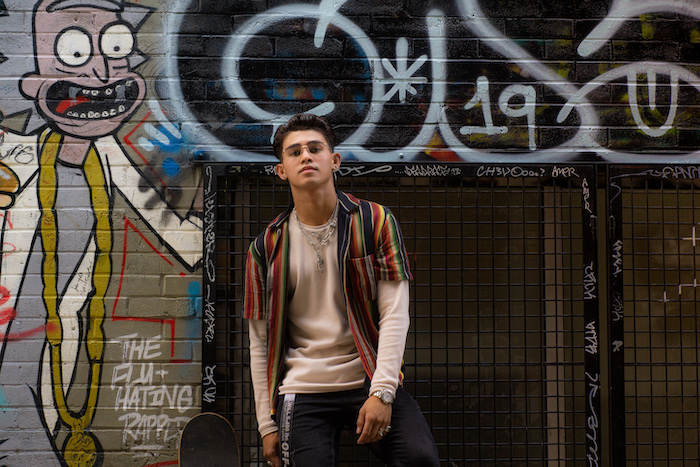Picture this: It’s 1987. A tiny Asian American woman with a big voice and an even bigger sense of chutzpah (look it up, it means “shameless audacity” in Yiddish) arrives in New York City fresh from Canada. Hip-hop is about to blow up in a big way, and Sophia Chang’s sense of magical timing and cultivated confidence brings her a coveted A&R job at Jive Records, into contact with the RZA, the Abbot of the Wu-Tang Clan, a dream gig managing the rapper Ol’ Dirty Bastard, and the chance to create a family with a real-life Shaolin monk.
As far as Asian Americans or Asian Canadians kicking down doors in hip-hop goes, Chang is a legend and an inspiration. She now uses her incredible storytelling skills to find out just why she is indeed, “The Baddest Bitch in the Room.” Chang’s Audible memoir stretches back to her mother’s hair-raising escape from North Korea, her time managing gifted rappers and producers and how she raised two kids as a single mom.
I caught up with her in mid-August. She just got home from the gym and was ready to talk about her new audiobook. This selection has been edited from its original recording.
I’m 99% done with your audiobook, and I’m constantly amazed at how outgoing and brave you are at seizing moments and networking. How do you deal with rejection?
I just keep it moving. What are you gonna do? The fearlessness in the approach is the same as the fearlessness of the rejection, meaning, it would be really dissonant if I was so intrepid in just walking up to anybody and if I was crushed by rejection.
I’m not necessarily attached to outcomes. What I’m attached to is that I do the best job that I can. I talk about that in my memoir in terms of how I’m raising my children, too. You don’t have to get straight A’s or strive for perfection. Just tell me that you did the best that you can. I’ve been rejected plenty. I’ve been rejected by men, by business opportunities, by women with whom I’m friendly and I’ve been shut down. I think that if I had so much invested in one specific thing, that it would be more disheartening. But I do it so frequently that it just becomes part of my M.O.
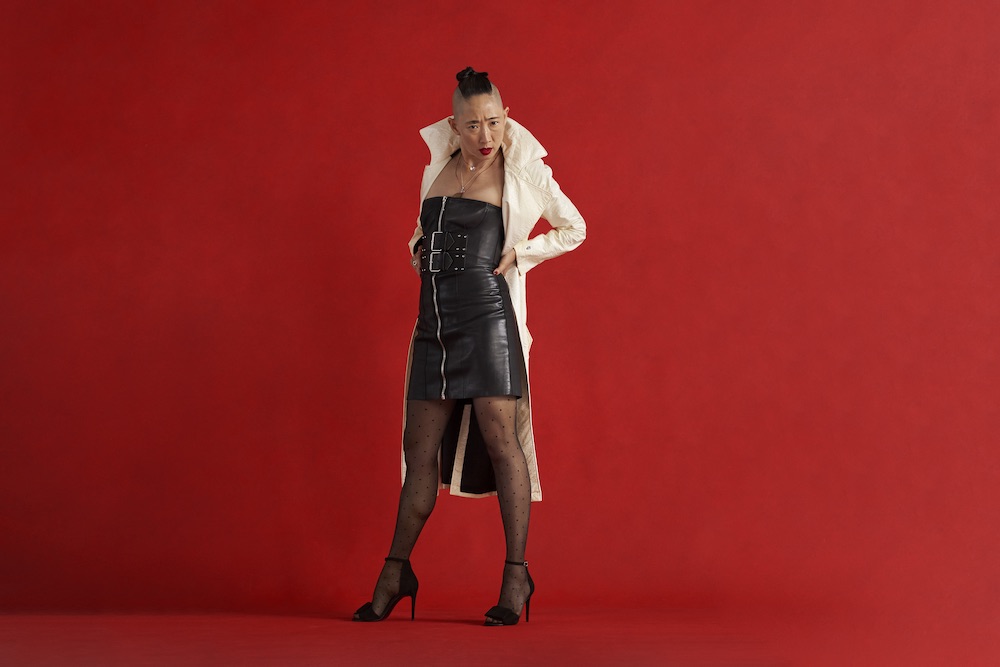
Were you ever sexually harassed, assaulted or overlooked because you’re an Asian woman?
That’s hard to say. So, I mean I’ve had all of those things happen to me. Would I say that it’s specifically because I’m an Asian woman? Not necessarily. But I would say that I’ve had things said to me that’s specifically about my ethnicity. Like, ‘Is your p*ssy sideways?’ Most Asian women I know have been asked that question. That’s a question that I’ve been asked because of my race. The behavior, whether it’s microaggressions or overt racism, that I’ve experienced around being an Asian woman is less around sexual harassment and more about my behavior in general, whether it’s in the workplace or out in the world
In your book you mention how you were fired by [the singer/songwriter and producer] Raphael Saadiq as his manager because you were too aggressive. Is that what you mean?
Yeah. I think that was probably more about me being a woman. The way that I present and the thing that I delight in is shattering stereotypes about Asian women. That’s not to say that there aren’t Asian women who fit into that stereotype. And that’s totally fine. I just know that that’s not me. The notion that I am hemmed in by what the dominant culture determines as the acceptable behavior for an Asian woman is infuriating. If I was that [stereotypical Asian] woman, I wouldn’t have a problem with it personally, but I should still have a problem with it collectively.
When I’m assertive, it’s disconcerting for people. Number one, because I’m a woman. And absolutely number two, because I’m an Asian woman. Do I think I’ve been overlooked for promotion because I’m an Asian woman? I don’t think so. Because honestly, I’ve never stayed at a job for longer than two and a half years, so I was never up for promotions like that.
I will say though that the one raise and promotion that I got in “Chapter Two,” the woman that lobbied for it herself was Eurasian. She was half-Japanese.
You told me once that you don’t like to focus on being a victim, but on your strengths. How did you develop such a rock solid sense of your own strength and abilities?
I’ve always been really confident. When I was writing, I asked my mom, ‘Do you remember a time when I was insecure?’ And she just laughed. ‘You? You were never insecure! You always knew exactly who you were, what you wanted, and how to get it ever since you were a child. You were always really confident.’ I don’t necessarily think that it was genetic. I don’t know where it comes from. And on top of that, I was blessed with brains. I’m really f*cking smart. And I know that.
I knew that growing up as a minority, I would need to shine in other ways, because the way that I presented was not necessarily considered attractive or popular. So, I compensated by being teacher’s pet, most popular, best dressed, smartest in the class.
As I got older, I continued to hone my intellectual ability and then my verbal ability, because it became clear to me that ‘my tongue is my sword,’ as RZA would say. While I lack power in other places, like in size, gender, ethnicity, I gathered in the way that I speak and the way that I write.
People always ask me, ‘How do you have this titanium level of confidence?’ I’ve had it since I was born. But I’ve also worked very hard to cultivate and maintain that.
Part of the cultivation is making sure that I’m surrounded by people who are incredible. You always hear about people who become famous and surround themselves with sycophants, just so they can constantly be buoyed and told how amazing they are.
Of course, I want my friends to celebrate me and support me and tell me that I’m great. But I also want friends who I can go to and say, ‘What did you think of that?’ The ones who are honest with me and will say, ‘That was inappropriate…I think that you overstepped…You probably hurt that person’s feelings and you didn’t realize it.’
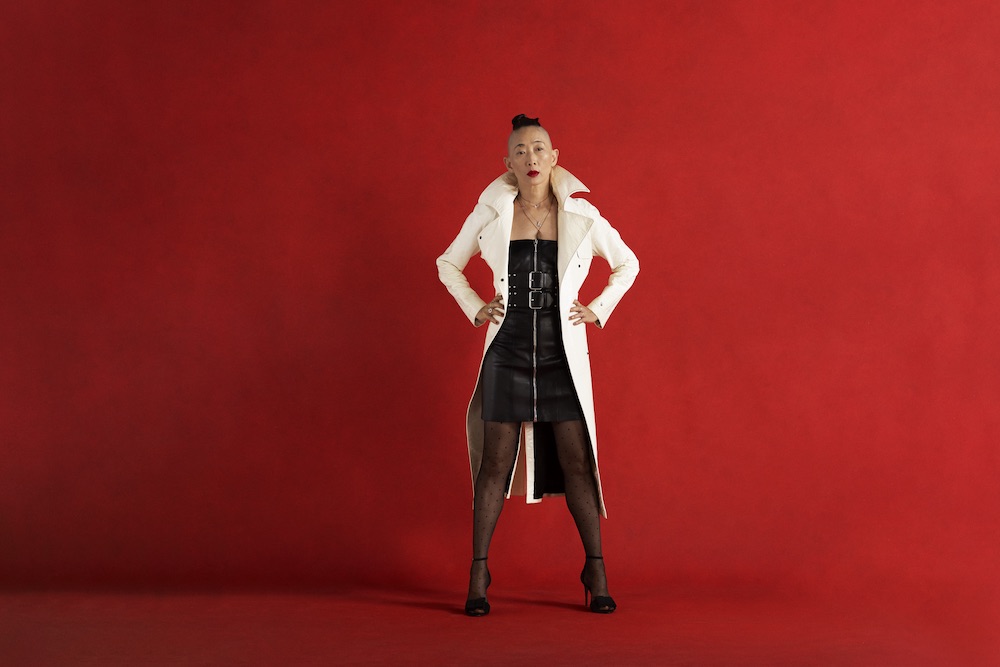
It seems like being an artist’s manager is like being a mom.
Yeah, when people used to ask me, ‘What do you do?’ I would say, ‘I’m a talent manager, a.k.a. babysitter.’ Because a lot of it was babysitting. For sure. It’s the most banal part of managing. The chasing, cajoling and the calling ten times to get out of bed and get in the car to make it to the airport on time. That’s so boring. Of course, it’s working with exceptional talent. And helping them tell their story.
So, your book is catnip to any Wu-Tang fan, and you’ve been able to hang out with them for so many historic and legendary moments. What’s something about the Wu-Tang Clan that would surprise even the most hardcore Wu fan?
I am only interested and qualified to talk about Wu-Tang vis-à-vis my personal experience with them. And I know that’s what you’re asking. Something that I think that people would find is surprising, but probably what they should think about … and I talk about this in my book, is … why did they choose me?
Yeah, that was my other question.
And I’ve actually asked them this. Recently. What I would like the audience to think about, as I say in the epilogue. What I’m asking from the world is to simply imagine that I exist. Imagine that it’s 1993. That it’s 26 years ago. And Wu-Tang comes out. And it’s in the very beginning. And they have all these people fawning all over them. They have all these people offering them all sorts of things. And the only thing that I offer them is me and my love.
They plucked me out and put me in their pocket. And I think that’s astonishing. I think it’s really touching. And it says so much about who they are as people. They didn’t care about anything except that here was this woman who was, number one, a huge fan, but there were hundreds of thousands of those. But, number two, they knew I would do anything for them because I loved them so deeply and I believed in them so, so much as artists and loved them so deeply as people. So, that’s the thing that I would ask the audience to think about in listening to my memoir is wow, she kinda came out of nowhere and they claimed her.
During the revision process of your audiobook, what did you realize was the core message in your story?
It’s very hard in speaking about my life to narrow it to a single core message.
But there’s a theme.
I think that there are a number of messages. One is to be fearless. Take more risks. You and I are both the children of Korean immigrants. We were not taught to take risks. I think that’s common for the children of many immigrants. I was fully expected to get a PhD and become an academic but I deviated flagrantly from this path. But they never pressured me.
Less than a month ago when I was at home with my kid, I had the most fascinating conversation with my mother. She’s 87 now. I said, ‘You and Dad, rest his soul, never pressured me to a certain path once I left for New York. You mentioned that you wanted me to come back and get an MBA but you never really did more.’ And she said, ‘No, we didn’t. Our friends thought we were crazy.’
The whole time, I’m in New York doing something that my parents really can’t properly describe. It’s not a profession that they or their peers are familiar with. Their friends are saying to them, ‘Your daughter has lost it, and she’s just basically gone.’ And they resisted. I don’t actually know what they said, but they probably said something along the lines of, ‘She’s doing what she’s doing. And we’re happy for her.’ And I think that’s amazing. Now, imagine that for Korean parents who went through the war.
In your book, sexuality is a huge part of your message, and you’ve always been proud and outspoken about it. How do your parents deal with that when it’s so antithetical to Korean culture?
I told my mother about my number. She’s the only person who I cared about telling. I don’t give a f*ck what anybody else says about the amount of men that I’ve been with. Nobody.
On the last day that I was at home, I said, ‘Mom, I have to tell you something. There’s this thing that men do where they ask women how many men they have had sex with.’
And my mom was like, ‘Why would they do that? That’s ridiculous.’
So, my mom totally understood from the feminist perspective why that’s an offensive, unfair and patriarchally framed question. And she was right on board. It’s none of their business. It’s not fair. And then I told her my number. And I could see her holding her breath.
I said, ‘Do you wanna know what it is?’
And she’s like, ‘I don’t know.’
I told her that it’s 66.
She said, ‘I don’t believe that.’
I said, ‘It’s true, Mom. That is my number.’
So, she was really surprised. I’m sure she judged me, as anyone from that generation would. And she said, ‘What does your daughter think?’
I said, ‘She said she doesn’t care.’
Then she said, ‘What does your son think?’
I actually haven’t told my son, yet. But my son’s not going to care either because they know exactly who their mother is. By that I don’t mean that they know how many men I’ve had sex with, what I mean is that they know who I am as a woman, who is a sex-positive feminist, who is not afraid to tell the world who she is and what she’s done.
The reason that I told my mother was because I didn’t want to hear it from her friends at one of their monthly crab dinners. What if they’re at a buffet on Sunday eating king crab legs, and someone goes up to my mom and says, ‘My daughter or granddaughter was listening to your daughter’s audiobook and apparently, she’s had sex with 66 men!’ I did not want that to be the way my mother discovered it. It has been the only conversation around my audiobook that has been uncomfortable, but I knew that I had to have it.
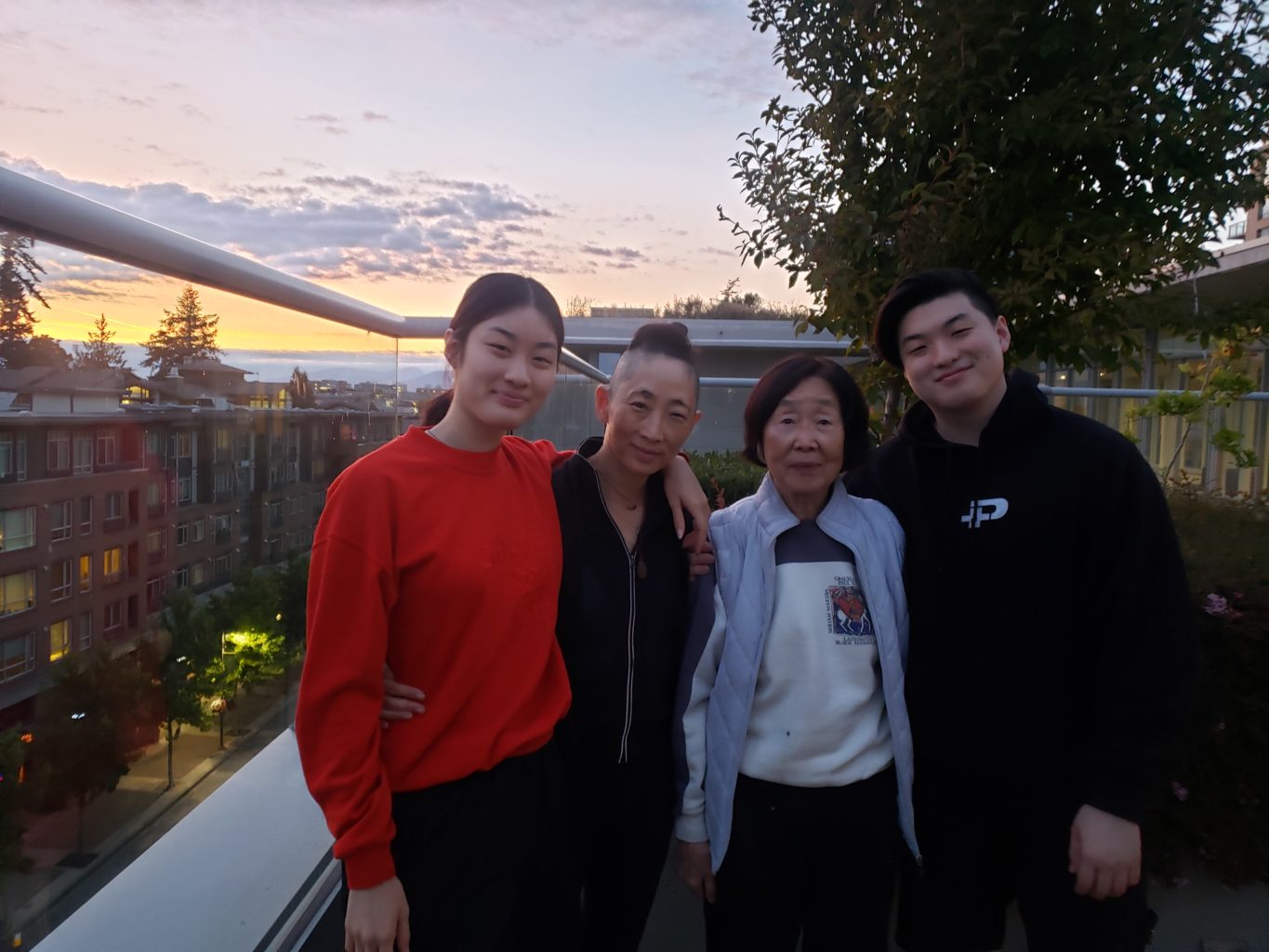
You were married to a famous Shaolin monk and had two children with him. How did you cope with the cultural differences that came with being with an immigrant who didn’t speak English well?
We weren’t formally married, but he was my husband for all intents and purposes. The language barrier was challenging, but it was also kind of fun. We were so in love that it kind of didn’t matter.
Shaolin Temple is the founding place of Chan Buddhism which migrated to Japan, and which we know much more commonly as Zen Buddhism. One of the cardinal rules in Chan Buddhism, from its inception, is a heart-to-heart, mind-to-mind transmission. You are not to write anything down. That rule was eventually broken. But the notion is that we communicate heart-to-heart, mind-to-mind. And that is how Yan Ming and I communicated. And that’s how Yan Ming and RZA communicate from what I can see.
At first I was training kung fu. It was a very physical thing that I was doing: just learning from him via osmosis. Watching him train and spending so much time together, the language barrier wasn’t that much of a problem. Culturally, I was diving into his world, and he was diving into mine.
So, here he is fresh off the boat. He’s in America and he’s trying to build a business. Oh my God, here comes this woman and she knows exactly how to do this. And then, here I was going to him. That’s why the chapter is called “When the Student Is Ready.” This is how the universe works. I was led to him by the Wu-Tang. And then he teaches me the greatest spiritual lessons of my life. So, the cultural differences didn’t become a problem until we started to have children.
Yan Ming was raised at the Shaolin Temple. So, he woke up at 4 a.m. and for the next 16 hours he trained, he studied, he prayed and he cleaned in cycles. And then he did it again the next morning. He was raised in an extreme disciplinary environment. They had the sh*t kicked out of them. They were beaten. It’s China in 1970! Nobody’s calling child services. That’s how they train. I don’t think he would have had it any other way.
So, a lot of us are like, what’s he going to be like as a parent? Is he going to be the disciplinarian? He chose to go the other route. That was certainly difficult. So was the notion of who we were as parents. He wanted a family bed. I think a lot of Asian families like the family bed. But I wanted more autonomy from the children, because I nursed the kids for over a year. He didn’t necessarily want to do a date night. That’s totally foreign to him. There were things that I would have done that were not of his culture.
What was unusual about your book recording is that you were able to get all these other voices to do their parts in the story. What was that process like?
Hell. I mean, when I first conceived of this idea 14 months ago, the first thing that came to mind was that I’ve always known that the Method Man-in-the-studio story was going to open my memoir. Always.
So, as soon as I started talking to Audible, I said to my editor, ‘I want Method Man to voice his dialogue.’ She said, ‘Wow that’s incredible.’ And then I knew the other voices that would populate it—all the members of the Wu-Tang. And as I was writing, I realized there was more and more and more. So, now there are over 20 voices in there. And it was hard.
Because it’s not like we all work in an office, where I can tell people to go in the studio. Half of the people in my book are rappers. And they’re running all over the place. This is not something that is difficult or time consuming, it’s just yet another thing they have to think about.
Getting all the talent was a humongous task, and it was something that only I could do. I’m the only one with the relationships. So, I’m not going to send somebody from Audible to go to Norfolk, Virginia to go sit in Method Man’s hotel room at one o’clock in the morning.
For the guys in the Wu-Tang, I recorded a lot of it at their hotel rooms after shows, and that’s a very specific energy that they have. They don’t want a lot of people around. They don’t want a lav and a boom in their face.
A lot of it was getting on planes and taking trains. It was a lot of cajoling. It had nothing to do with whether or not they wanted to do it, it was about if they had the time. And when they did, it was incredible. It was intimate. It was really touching, really funny and such a great way to reconnect.
One of the great things about the memoir is that I get to honor the people in my life. I get to tell the story of my mother escaping from North Korea at the age of 14. And I get to honor Wu-Tang and explain in more depth what it means to say, ‘My name is Sophia Chang, and I was raised by Wu-Tang.’ It was laborious. But it was a labor of love.
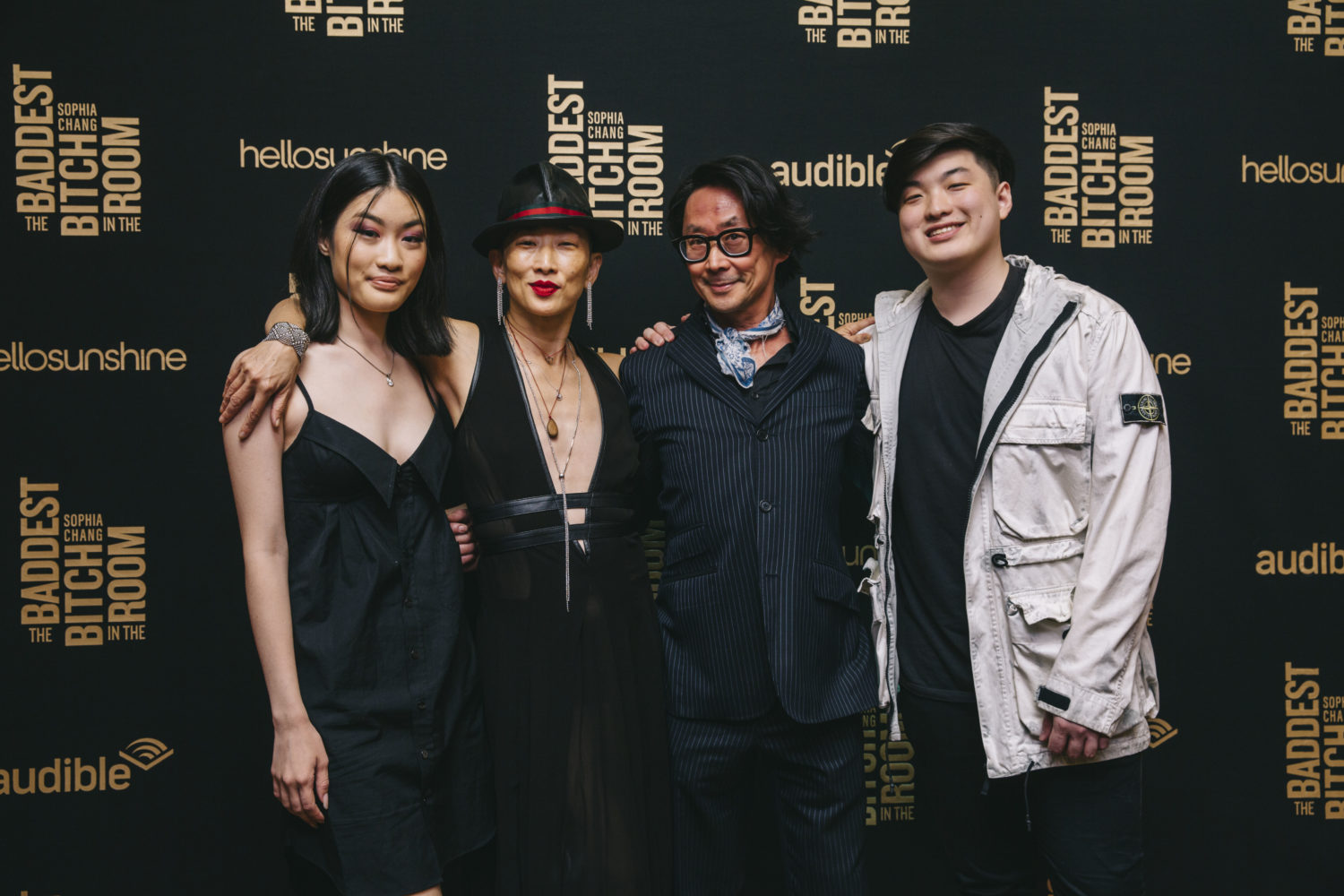
You’ve survived all these crazy epochs in the entertainment industry, the rise of hip-hop, the death of the music industry, the rise of digital entertainment. What is your next plan?
Public speaking. That’s what God put me on this earth to do—to stand onstage with a microphone. I’ve started lecturing a number of years ago. I know that this memoir will be a catapult to take me to the next level. I lectured at Spotify a couple years ago. I read RZA my closing and he said, ‘Wow, Soph! Congratulations! This is your thing. I can see you speaking in stadiums with 20,000 people.’ I said, ‘Oh my God, that is exactly what I’m going to be. I’m going to be on stage with tens of thousands of people listening to me speak.’
What will be your song as you come out on stage?
That’s a good question! I’ve thought about this! It would be ‘Wu-Tang Clan Ain’t Nuthing ta F’ Wit.’ My other theme song would be ‘i’ by Kendrick [Lamar]. That song is so incredible. The hook goes, ‘I love myself!’
A condensed version of this article will appear in Character Media’s October 2019 issue. Check out the e-magazine here.
You can check out Sophia Chang’s audiobook here.

